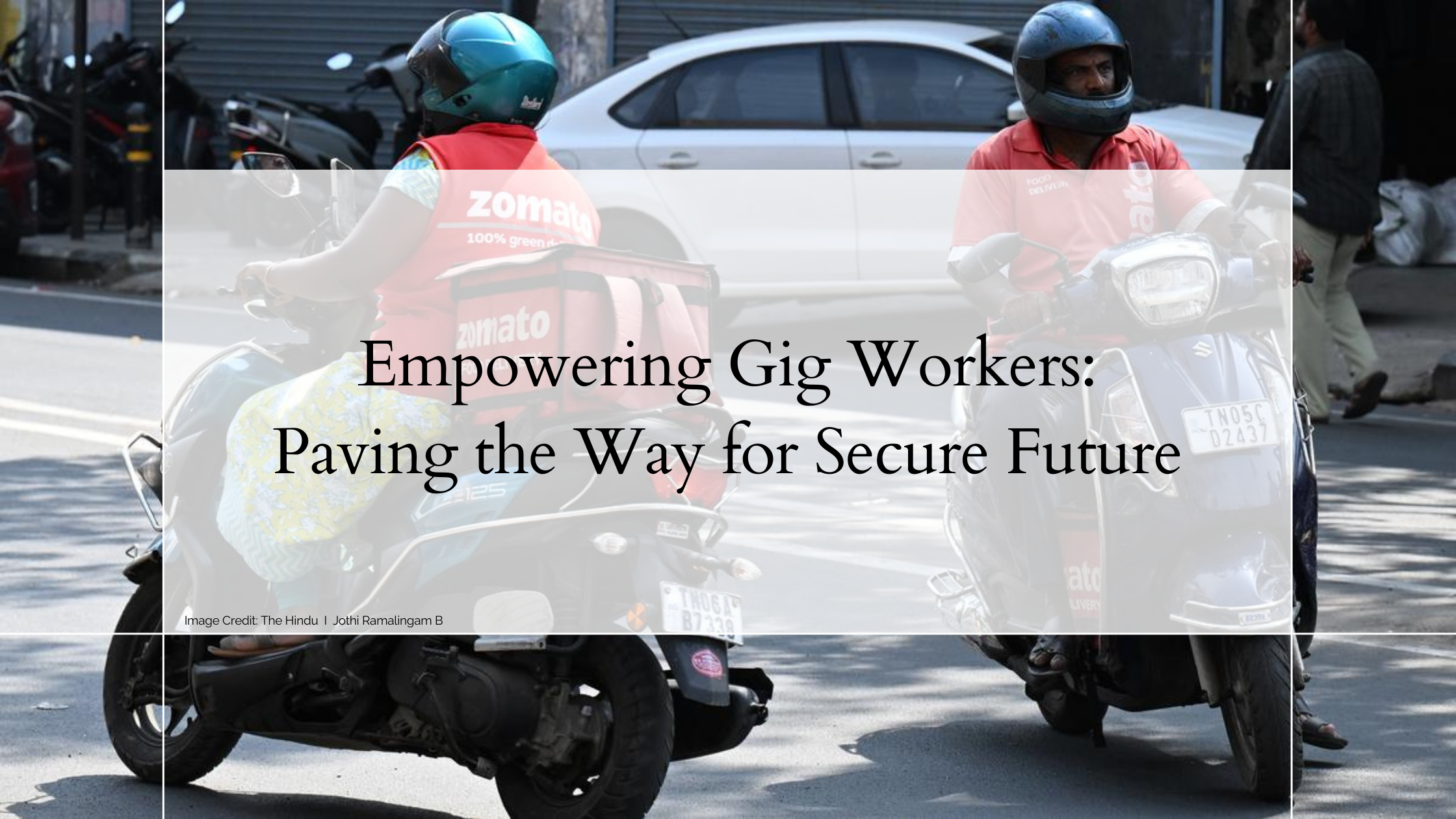
20 Feb Empowering Gig Workers: Paving the Way for Secure Future
Meena, a delivery worker in Delhi, works tirelessly every day, delivering food and groceries top eople’s homes. She navigates busy streets, endures extreme weather, and works long hours, often without the safeguards that come with formal employment. Like many in the gig economy, a rapidly growing workforce engaged in temporary, flexible jobs, often through digital platforms but not limited to them, Meena lacks the benefits and protections of traditional employment. Last year, after a motorcycle crash left her with a broken arm, she had to rely on her savings, which quickly ran out. Without health insurance or paid leave, her financial stability collapsed.
Sadly, her story is not unique. Across India, millions of gig workers like Meena form the hidden backbone of the economy but remain excluded from labor laws and social security protections.
In 2021, NITI Aayog estimated that India had 7.7 million gig workers, making up 1.5% of the nation’s total workforce. This number is projected to increase to 23.5 million by 2030, representing 4% of the workforce. The six largest transport and delivery platforms alone engage approximately 3.3 million workers, surpassing the 1.3 million employees of Indian Railways, the country’s largest employer. Despite this significant workforce, gender-disaggregated data remains unavailable, making it harder to address the specific challenges faced by women in the gig economy.
Recently, Safetipin, in collaboration with Gesellschaft für Internationale Zusammenarbeit (GIZ) GmbH and Transformative Urban Mobility Initiative, conducted research study titled Women Behind the Wheel. This study explores the experiences of female gig workers in the transport and logistics sector across South Asia, including India, Pakistan, Nepal, Sri Lanka, and Bangladesh. The findings reveal that female gig workers often face additional layers of discrimination and safety risks, from harassment and pay inequity to limited access to healthcare and rest areas. While women make up a significant portion of this workforce, their needs are often overlooked in policy discussions. If the gig economy is to be truly inclusive, these gender-specific concerns must be addressed, ensuring that women have equal access to benefits, protections, and opportunities.
India has taken steps toward recognizing gig workers’ rights, with states like Rajasthan and Karnataka introducing social security codes. However, these policies have faced challenges, often lacking the necessary financial commitments or leaving gaps in implementation.
The 2025 Union Budget seeks to address this by proposing, for the first time, a dedicated social security fund for gig and platform workers. This fund aims to provide critical lifelines such as health insurance, pension benefits, and emergency financial support, protections that gig workers have long been denied. Additionally, the budget introduces a formal framework for gig work, mandating employer contributions and stricter compliance from platforms.
These measures could provide much-needed stability for millions of workers like Meena, ensuring they are not left to navigate the uncertainties of gig work alone. While this is a historic and promising step, its true impact will depend on effective implementation, strong accountability, and a commitment to making gig workers’ voices central to shaping these reforms.
On this World Day of Social Justice, it is crucial to recognize that building a fair and just future of work requires long-term commitment. India has taken a significant step forward, laying the groundwork for meaningful change. If these policies are implemented effectively, they have the potential to transform the lives of millions of gig workers, ensuring that they receive the security, dignity, and opportunities they deserve. The journey toward social justice is ongoing, but this momentGig Economy to the Safetipin site marks a powerful beginning.

